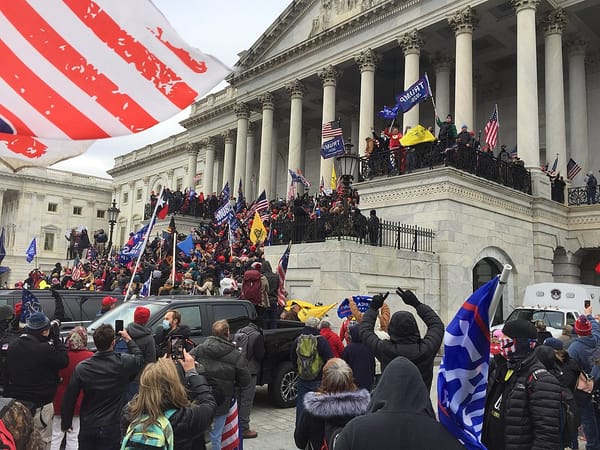Would the PRO Act Put Freelancers Out of Work?

Pre-pandemic, 34% of the American workforce was involved to some degree in the “gig” economy. The number of freelancers and contractors grew by 33% during 2020 in response to the economic and emotional toll of instability in places of employment during COVID times. Independent workers appreciate the ability to be their own boss, work flexibly, and choose the projects they work on.
Even in the world of freelancing, workers see room for improvement in their working conditions, but face a barrier to unionizing for the common good. “Under current labor law, freelancers can form unions like ours, but our attempts to organize are not protected—and employers are even able to file legal charges against us for some of the very same activity protected for our W-2 colleagues,” the Freelance Solidarity Project said. “This means we are forced to walk a very narrow line, and in some cases avoid certain types of organizing and advocacy entirely.” A plethora of federal, state, and local employment laws protect employees from discrimation and unfair pay and ensure employers provide social security, healthcare, and workplace safety. Independent contractors and freelancers are not employees and generally are not entitled to the same protections.
To reform current labor law for all workers, which has been chipped away at since the passing of the NLRA in 1935, the House of Representatives passed the Protecting the Right to Organize Act (PRO Act) to make union friendly changes to current labor law. It includes, but not limited to, extending joint employer liability, expanding the definition of ‘employee’, changing union election rules, eliminating right-to-work protections, and allowing for strikes.
“Since the passing of the NLRA, every piece of labor reform has been anti-worker – watered down and crippled by enemies of unions,” says Charles, freelance writer and member of Freelancers For The PRO Act.
The PRO Act is the Democrats’ proposed solution for workers to feel empowered to exercise their freedom, organize bargains, and correct the inequalities that exist within the workplace.
Mark is an Uber driver and freelance software designer. “Before the pandemic, if I didn’t have full-time design work, I would start my day in a coffee shop sending out resumes for design work, and then hit the road for fares on Uber an average of 10-12 hours a day, six days a week. I eventually had to start adding in food deliveries because of how few fares there were because of so many drivers being on the road. About three months before the pandemic, I went on food stamps. As a full-time driver, I felt invisible because the app never showed me logging more than 40 hours a week on the app. Breaks between fares, driving empty for positioning to get to busier neighborhoods, cleaning, maintenance, gas trips, etc. never show up on the app’s time logs. I stopped being able to make enough to pay rent and moved in with my partner. I was lucky to have that. I later learned Uber’s own data shows 40% of drivers’ time is unpaid.”
Despite Mark’s less-than-appealing working conditions for Uber, he wouldn’t dare raise concerns to avoid retaliation that would lead to the loss of his livelihood. Under the PRO Act, he would feel empowered and protected to join hands with other drivers to demand better working conditions.
Many freelancers and contractors have expressed their hesitation and disagreement with the passing of the PRO Act based on the outcomes of a similar piece of legislation in California, the AB5, which left many freelancers without work. AB5, rolled out in January 2020, provided new rules for how businesses classified workers, based on an ABC test which defined a worker as either an employee or an independent contractor under labor, tax, and employment law. It was California’s way of protecting independent workers who were operating as employees, but not receiving the benefits of employment. It expanded who qualified as an employee, giving them added protections and rights under employment, labor, and tax laws. As a result, many freelancers, who prized their autonomy, were turned into employees under labor, tax, and employment law, or had their worked capped by employers.
Kim Kavin, of Fight for Freelancers, fears the same is in store with the passing of the PRO Act. “The ABC Test in the PRO Act would misclassify millions of independent contractors as employees of our clients in labor law. We are not anyone’s employees; we are small-business owners.” She went on to say: “It’s the first step in President Biden’s stated three-part plan to make the ABC Test the basis for labor, employment and tax law.”
While Kavin’s concerns are valid, considering the extent to which freelancers were affected under the AB5, many freelancers disagree with her assessed outcome.
Phillip Golub, pianist, composer, and member of the Music Workers Alliance says: “The PRO Act only applies the ABC test to the questions: Do you have collective bargaining rights under the NLRA and do you have protections to take collective economic action under the NLRA? In other words, it only applies to labor law. Freelancers are not going to be turned into employees by the PRO Act and an amendment was even added before it passed the US House clarifying that fact.”
If, following the ABC test, a freelancer is classed as an employee under labor law, it will not affect their freedoms as a freelancer. Under employment law, under tax law, they will still be an independent worker. The only changes would be they could be protected by NLRA protections and have the power to unionize under the PRO Act. To make it even clearer, an amendment was passed in the House of Representatives stating: “The amendments made under this Act shall not be construed to affect the definitions of ‘‘employer’’ or ‘‘employee’’ under the laws of any State that govern the wages, work hours, workers’ compensation, or unemployment insurance of employees.” Any concerns that the PRO Act will become another AB5 are unfounded based on the amendment’s assurance that freelancers will not be reclassified as employees.
“Without a union, I can never do anything to fix problems in the industry,” Charles says. “Not even just problems about pay, but being paid on time. Being able to collectively bargain to make prompt payments legally enshrined into contracts would be a big deal.”
Nick Brentley, a freelancer in the performing arts industry, explains how the power to unionize could transform his industry: “When there are enough things that are wrong and not working for us, we can band together to say ‘these wages aren’t enough’ and ‘these working conditions are unfair’.
Many freelancers aren’t looking to be employed under tax or employment law, as what is happened under the AB5, but they are “looking for their right to take collective action against employers and clients for better working conditions, fairer contracts, and so on,” as Golob explained. This right would become enshrined in law under the PRO Act.
It isn’t only creative freelancers that would benefit from the PRO Act, but the millions of exploited individuals working on construction sites, driving trucks across country, painting buildings and other industries that tend to take advantage of the vulnerabilities of people in poverty. Employers class them as independent contractors to get away with minimal payments, not providing legal protections, and the avoidance of offering benefits. “They get forced into working in really unsafe working conditions and can’t do anything about it,” Charles says. Under the PRO Act, this vulnerable group of contractors would be recognized as employees under labor law and can unionize to call for change.
“All the PRO Act does is give new rights we freelancers don’t currently have to take collective action,” Golob says. “It doesn’t turn us into employees so there is no danger and nothing lost, sacrificed, or changed.”
Power to unionize, with no employment strings attached—a freelance dream.
Featured Image is Construction worker resting on a break, by Jorge Royan




